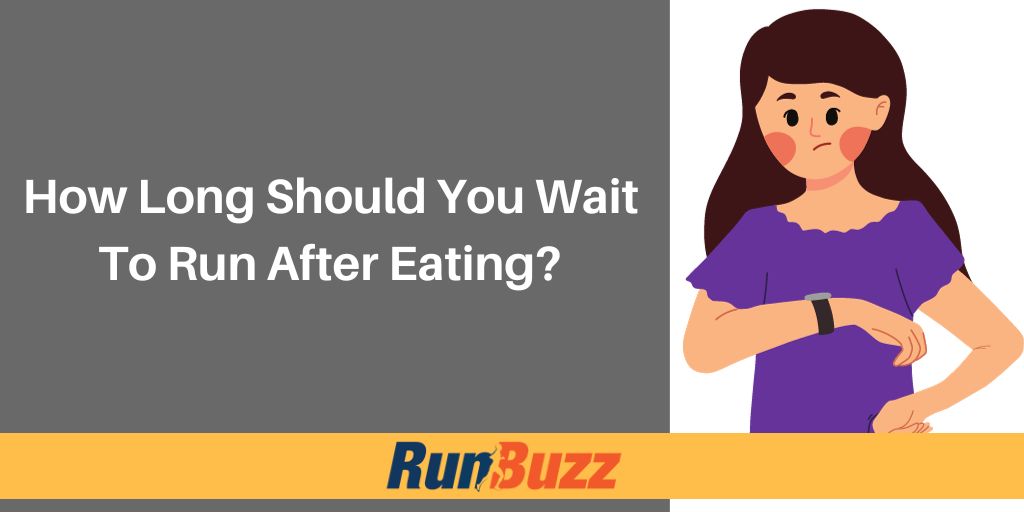As a running coach I often get asked about how long a runner should wait after eating before going for a run. And while it is easy to just rattle off an exact time, there are actually lots of factors that impact how long it takes for digestion to occur. At least to a point where it does not negatively impact your running.
For most of us, the time to wait after eating is 90-120 minutues on average, but as you will see below this will depend on numerous factors.
The problem with exact timings is that each person is different. For example, in most cases, I have been able to run within an hour of eating a meal, however for many that would be too soon.
In this article I dig into some key factors to help you decide how soon you should wait to go run. I’ll talk about meal size, meal composition in terms of food types and macronutrients, metabolism, stress level, age, and whether or not runners digest food faster than non-runners.
Let’s start with meal size.
The impact of meal size and wait times before going on a run
The factor that has the biggest impact on how long you should wait to run is meal size. How much food you consume impacts how long it takes to empty your stomach. In general food stays in the stomach for 45 minutes to two hours, and an additional few hours to get through your small intestines and a few more to get through your large intestines.
Here are the recommended times to wait:
Large meals
Large meals take longer to digest so the general rule of thumb is to wait about 3-4 hours before you go on a run.
Small meals
Small meals don’t fill the stomach as full, so for most people, you can go run about 2-3 hours after smaller portions.
Snacks
Snacks usually do not have too much impact, however is recommended that you wait at least 1-2 hours before you head out on a run.
If you are looking for specific pre-run meals or pre-run snacks, here is a guide on what to eat before a run I put together for several of my runners and readers.
Types of food and meal nutrient composition impacts
What you eat is another factor that impacts digestion speed. According to Dr. Christine Lee, MD, a gastroenterologist at the Cleveland Clinic, the more dense a food is, the longer it takes to eat. This means that the more fat or protein a food has, the longer it takes to break down.
The best foods to eat if you are short on time is simple carbohydrates. Pastas, rice, and simple sugars can leave the stomach in as little as 30-60 minutes, not to mention give you a boost of energy for your run.
But eating a light high-protein or high fat meal or snack can add an additional hour or two to your digestion time. These types of meals are best for after you run so they can facilitate recovery.
However, if you have several hours before you run, a balanced meal a few hours before your run can provide the energy you need.
According to the Cleveland Clinic article referenced below, liquids take less time to leave the stomach because the digestion process is not as complicated.
Water can take 10-20 minutes, clear juices, teas and sodas can take 20-40 minutes while complex liquids such as smoothies and protein shakes can take 40-60 minutes.
Metabolism and it’s impact on digestion
Another factor on how long it takes for us to digest food so we can head out for a run is our metabolism. Genetics, age, and our activity levels can have significant impact on our metabolism. The faster our metabolism, the faster our body typically breaks down food into energy.
Some of us are born with a fast metabolism while others have a slower metabolism. Age is another factor. As I have aged, I have seen firsthand the impacts of a slower metabolism.
One of the best things we can do to help speed up our digestion rate and metabolism is to be active. The higher our activity level, the more efficient our body will be at utilizing energy, including using the nutrients found in the foods we eat.
The impact of medications on digestion time and running
Medical conditions like high blood pressure, diabetes, and atherosclerosis often leads to medications that can impact our digestion rates. If you have a medical condition, it is best to consult a registered dietitian in your area or your doctor to get a more specific fueling plan unique to your situation.
Sources and Citations
How long does it take to digest food – Breaking Down Digestion Speed – April 29, 2023 – The Cleveland Clinic
- About the Author
- Latest Posts

Steve Carmichael is a running coach, sports performance coach, nutrition coach and has been a recreational runner for over 18 years. Steve holds multiple certifications as a certified running coach through the RRCA and USA Track and Field as well as he is a NASM certified personal trainer, and PN1-L1 certified nutrition coach.
Steve has been coaching since 2010 and has helped thousands of runners online and in the Central Ohio area maximize performance and run injury-free.
Steve is the founder of RunBuzz and Run For Performance.com. If you are interested in working with Steve though his online running and strength coaching services, feel free to reach out.

